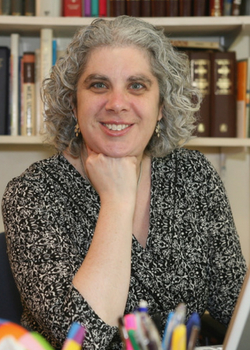It’s the repeated theme of the musical “Hamilton”: Who lives, who dies, who tells your story?
As Lin Manuel Miranda writes in his notes to the libretto of the show (in “Hamilton, the Revolution” which Miranda wrote with Jeremy McCarter), “Once I wrote this passage, I knew it would be the key to the whole musical... It’s the fundamental truth all our characters (and all of us) share.”
The line first appears in the song “History Has Its Eyes on You,” sung largely by George Washington, commonly known as the “Father of Our Nation.” But the play is more broadly about many of our “Founding Fathers,” including not only the titular and central character, Alexander Hamilton, but others including Aaron Burr, James Madison, John Adams, and Thomas Jefferson. Jefferson, of course, was the author of the Declaration of Independence, which was signed on July 4th and so makes this day what it is for citizens and residents of the United States.
It just so happens that the 4th of July falls on Shabbat this year, the Shabbat on which we read the combined parshiot of Hukkat-Balak. Much of the Torah is about the founding fathers (and mothers) of our nation – the patriarchs and matriarchs of Genesis, Joseph and his brothers, Aaron and Miriam – but none more so than Moses (so much so that we also call the Torah the “Five Books of Moses”).
I’ve been sitting for some time with these two parshiot and trying to imagine what connections I could draw to today’s holiday in the United States, and struggling to come to a helpful answer. We’re in the midst of the book of Numbers at the moment, and this is a challenging book. In the last two weeks, we read about the disastrous end to a scouting mission into the Land and God’s determination that the Israelites will wander for 40 years and the generation of the Exodus will die out, and then about the rebellion led by Korah. In the course of Hukkat, Miriam dies, Moses strikes the rock instead of speaking to it and is condemned to die before reaching the Land, Aaron dies. Balak is somewhat more uplifting, perhaps, as the intent of the prophet Bilaam to curse the Israelites is turned to a blessing, but it also ends with an episode of Israelite rebellion and the zealotry of Pinhas.
But I think Lin Manuel Miranda has graciously found a key for me, and us, as well as for his own theatrical vision: “History Has Its Eyes on You.” And therefore: “Who lives, who dies, who tells your story?”
In “Hamilton,” Washington sings another highly significant song in the middle of the Second Act, “One Last Time.” Although much of it is based on the actual text of George Washington’s Farewell Address, when he chose to step down from the presidency, it is introduced by a short dialogue between Washington and Hamilton. Hamilton asks: “Why do you have to say goodbye?” And Washington answers: “If I say goodbye, the nation learns to move on./It outlives me when I’m gone.”
In Micah 6:4, the haftarah for this week, God tells the People, “I brought you up from the Land of Egypt, I redeemed you from the house of bondage, and I sent before you Moses, Aaron, and Miriam.” But we have reached the moment in the Torah when we now know: this is a story that will be larger than the people who brought it this far. The story of the People of Israel must grow beyond these founding siblings, and learn to outlive them when they are gone. Perhaps it is not a coincidence that after Parashat Hukkat, even the surviving sibling, Moses, hardly figures in Parashat Balak, and we are introduced to a new generation in Pinhas, grandson of Aaron, who will carry on the High Priesthood.
I was ten when the United States celebrated its bicentennial in 1976, and even in the slightly over 40 years since then, our country has changed more than I could have ever imagined. And also still struggles with the legacies of mistakes made along the way and deep injustices embedded in its foundation (most notably slavery). And yet we also try to adhere to and expand on core principles of democracy, equality, and freedom gifted, if incompletely, to us by our founders. So too the Judaism I practice every day looks very different from that imagined in the Torah, or even by the rabbis whose works I study and teach daily. In a famous story in the Talmud (Menahot 29b), the rabbis imagine Moses visiting the study house of Rabbi Akiva, and being unable to follow the proceedings; so too, I imagine Rabbi Akiva would be at least initially mystified in
the synagogues and schools of today. Yet as both Jews and Americans, we never abandon the chain of tradition that leads from our forbearers to us.
It has always been thus, both for Jews, and Americans, and for those of us who claim both identities. The very last words of “Hamilton” are, once again, “Who tells your story?” But I think at least one answer – if we are to fully commit to both our Jewish and American heritages – is that we do. It’s our story now, and up to us to determine how we will tell it and how it will be told after us by yet more Jews and Americans to come. May the story we tell be worthy of our ancestors, and our descendants.


 Download PDF
Download PDF